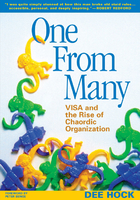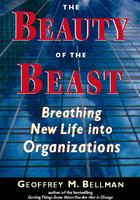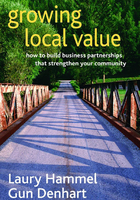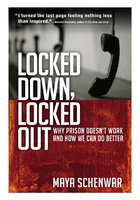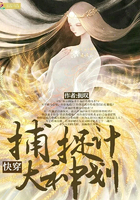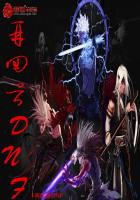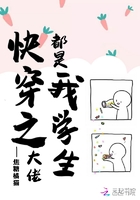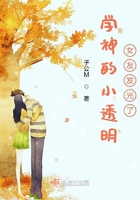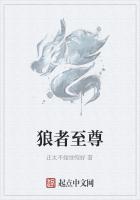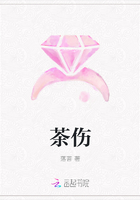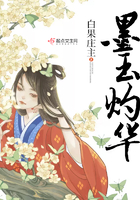The Journey of an Evolving Idea
We didn't set out
on this journey,
to travel the path
of resilience,
but
resilience howled to us,
its voice hoarse
against the wild wind
of life
JMCB 2017
Something interesting happened in our journeys as leaders and as explorers of leadership. More and more as the years passed, we found ourselves being drawn to the notion of resilience. At the same time, our clients were asking us to help them journey through situations requiring resilience. All leaders seek to be resilient in their work and their lives, to withstand what organizations and life can throw at them, and to rise again from despair. We have also sought resilience for ourselves in our work and life as educators, consultants, entrepreneurs, and leaders. We have struggled to stand again in difficult times, and to claim our own agency, even if that agency was merely a whisper.
This book is a commentary on our exploration of building resilience with appreciative inquiry for ourselves, other leaders, and organizations. We call this book a commentary for three reasons. First, the book deeply reflects the thinking, reading, and work we have been doing with appreciative inquiry and resilience for many years. Second, we recognize that this book is just one viewpoint on resilience. It represents our perspective, not the only perspective, on resilience. Our ideas about resilience are, at times, confluent with those of others; and, at times, they enter into new territory based solely on our work and reflection as leaders. Third, we are white lesbians living in Canada. The privilege that being white accords us and the discrimination we have experienced as lesbians influence this commentary deeply. We experience freedoms that many around the world do not have, yet both of us are old enough to have lived through a time when we dared not tell people who we really were. We recognize the influence that whiteness and living in a stable country has had on our view of leadership resilience. We also know as lesbians what it means to be excluded and discriminated against. We understand that we are influenced by our positions, privilege, and power as well as by our experience of difference. Consequently, we have created a commentary, a place where ideas are put forward with a generous spirit for leaders to take what resonates, use what is powerful, and expand on the ideas in this book for themselves.
As two long-term educators, we didn't start out to explore resilience. In our work as educators and as educational and organizational consultants, we have used appreciative inquiry approaches to foster positive innovation inside education, nonprofit, and for-profit organizations. Appreciative inquiry approaches focus on what is working well with individuals, organizations, teams, and systems in order to build positive futures. Through the years of using applications of appreciative inquiry, we have been continually struck by the power of appreciative inquiry to help people through the most challenging of experiences as well as through other organizational life journeys—planning, collaboration, and working well together. We wrote our book Appreciative Inquiry in Higher Education: A Transformative Force (2012) in the context of our work with higher education institutions and included other educational perspectives—schools, community development, and training—where learning was taking place. These applications included many kinds of outcomes, all of which can be summarized as a desire to create positive futures. In our journey of working with people in these organizational settings inside and outside education, we witnessed rich experiences of leaders seeking to be resilient. Life experiences and professional issues had created challenging times for them.
We became curious about how people seem to be able to make it through challenging times, carry on, and be resilient in their lives. We began to wonder how leaders in organizations dealt with hope, despair, and forgiveness in their daily leadership lives, and started to write about the link between these elements and resilience (McArthur-Blair and Cockell 2014). We wondered how leaders were resilient themselves and how they helped create resilient organizations. This intense curiosity led us through several stages of examining and reflecting on resilience.
We knew that appreciative inquiry, with its focus on exploring what is working well, grounded people in hope, no matter what their issues were. Appreciative inquiry helped people see challenges as opportunities and reframe problems as possibilities. We also began to focus on the power of appreciative questions as tools for reflection during challenging times. The experiences of despair are often the catalyst for inspiration. Although we had been using appreciative inquiry to work with leaders through challenging times, it was a deeply personal experience that inspired us to develop a new appreciative inquiry model. Jeanie was in a serious car accident, and living through that very challenging time led us to develop the ALIVE model. We reflected deeply on the experiences we and other leaders were having in challenging times and developed a model to capture how appreciative inquiry could be used to foster resilience. ALIVE is an acronym for a practice in which we appreciate, love, and inquire, in order to venture and evolve. The daily practice of appreciative inquiry with the addition of a focus on love rounded out the first part of the model. The second part builds on the first: to venture and evolve, in order to be resilient. We also developed critical appreciative inquiry, which focuses on the use of appreciative inquiry with social justice and large systemic issues. Both of these models contributed to our early thinking about appreciative resilience, both systemic and personal (Cockell and McArthur-Blair 2012).
This early work led us to melding the notions of hope, despair, and forgiveness with appreciative inquiry because we saw the power of bringing these ideas together. We were seeing the ability of appreciative inquiry to open dialogue about these leadership states in uplifting ways. From this, the idea of appreciative resilience, working with appreciative inquiry through journeys of hope, despair, and forgiveness, began to take form. Appreciative inquiry's focus on strengths and on what is possible reinforces a hopeful view. Appreciative inquiry helps people in times of despair to focus on using their capabilities in these times and to move forward or reside in the state of despair. When engaging people in appreciative inquiry processes, we are struck by the power of appreciative inquiry to open people up to seeing one another's strengths, perspectives, and worldviews, as well as their own. This opening up can help shift how they view the situation they are in. Through this shift, people can forgive, and the journey toward a hopeful view can begin anew.
This book is a view of resilience created by two women who for a lifetime have led in many situations both formal and informal; we have experienced successes and suffered despair. We are intensely and unstoppably curious about the experience of leaders as they undertake their roles. Our goal in this book is to offer a commentary that can open the door to leaders' exploring and reflecting on how they foster resilience for themselves and others. The notion of practicing resilience arises over and over in the book. Practice is something that one begins anew each day, adding to one's skills and capacity to be resilient. Undertaking this practice matters; we believe leaders can polish their resilience skills. This practice can't safeguard against all the complexities of leadership, but it can hone capabilities and strengths.
We hope that leaders, formal and informal, leave this book with a deep understanding of their strengths in times of success and challenge; leave knowing how appreciative inquiry approaches can be used to foster resilience; and leave uplifted by this commentary and the stories of other leaders included here.
Joan McArthur-Blair and Jeanie Cockell
Victoria, British Columbia, Canada
February 2018


